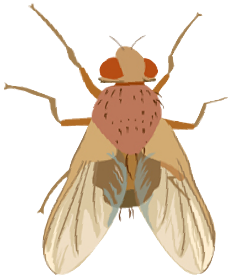
Teaching
-
BIO150
Evolutionary Foundations of Biodiversity
This course is the gateway for the biology major, guiding students as they develop the context, skills, and modern framework on which to continue their study of biology. Students explore the history, evolution, and diversity of life in the context of genetics and comparative genomics. The laboratory emphasizes question-asking, problem-solving, and exploring biodiversity, and students have multiple opportunities to practice and communicate their science.
-
NEURO239
Cellular and Molecular Neuroscience
Neuroscience is one of the fastest growing fields in the sciences, with research interests ranging from molecular genetics to whole animal behavior. Topics include membrane biophysics, synaptic transmission and plasticity, intracellular signaling, sensory transduction, motor control systems, and development.
-
BIO386
Animal Behavior
This course approaches the study of animal behavior from the blended viewpoints of evolutionary behavioral ecology and comparative psychology. Mechanisms of learning, cognition, and development, as well as aggression, territoriality, and mating are examined at the organismic and cellular level. A deeper understanding of the neural and environmental determinants of behavior in a wide variety of species helps students better understand themselves and their place in nature.
-
BIO287
Island Biology in the Bahamas
Intensive study of the biology that created the Bahamas and that now constitutes the living structure of these islands. Staying at the Gerace Research Center provides access to a diversity of marine and terrestrial habitats including coral reefs, seagrass beds, mangrove forests, hypersaline ponds, limestone caverns, and the “blue-holes” that connect inland waterways to the sea. The Gerace Research Center is located on San Salvador Island.
 B
B